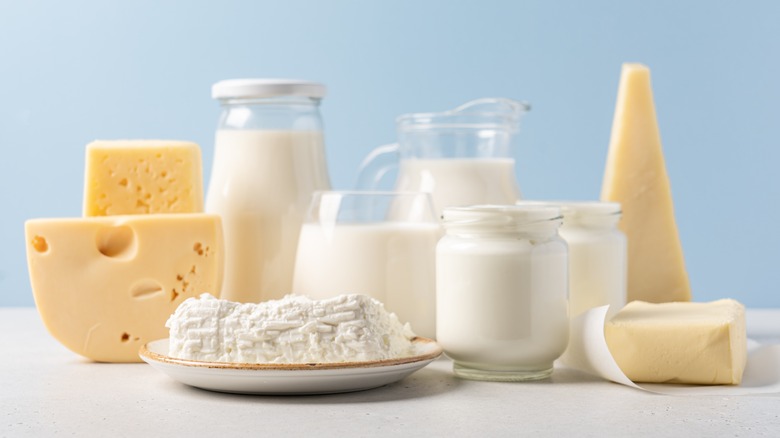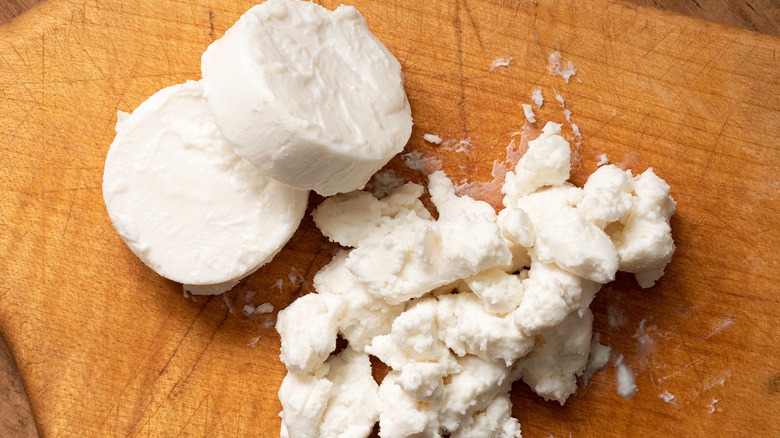Why Goat Cheese Could Be Safe For Lactose Intolerant Cheese Lovers
There's nothing quite like a cold glass of milk with cookies, or the unique flavors of a good cheese board, but how can you appreciate them if you are lactose intolerant? Thankfully, for the approximately 30 million Americans who are estimated to be lactose intolerant, per Medline Plus, the list of nutritious and tasty milk substitutes is constantly expanding, making it a little easier to have a refreshing drink with dessert. However, for lactose intolerant cheese lovers, things can be a little trickier to navigate.
The Mayo Clinic explains that lactose intolerance is caused by the body's inability to digest lactose — a sugar contained in animal milk — due to a deficiency in lactase, an enzyme produced by the body specifically to break down lactose. Not all lactose intolerance looks the same though. While some people in rare cases are born entirely lactose intolerant, according to Healthline most people develop the condition as they age, because the body needs less lactase once we are no longer dependent on just a milk-based diet as babies. While everyone's body slows down its lactase production, in some people production slows down too much, which makes them unable to break down dairy products effectively. This can cause uncomfortable digestive issues including bloating, cramps, gas, nausea, diarrhea, and vomiting. The degree to which this happens, though, varies by individual. While some people may have to cut all dairy from their diet, the Mayo Clinic notes that most lactose intolerant people can manage their intolerance while still enjoying some dairy products.
Goat milk?
If you discover you need to cut down on your lactose consumption in order to avoid intestinal distress, then goats might be your new best friend. While Healthline notes that most lactose intolerant people can consume about a cup of milk per day without experiencing negative symptoms, that becomes harder to comprehend when you're trying to pick which cheeses to sample.
Old Europe Cheese explains that certain dried or aged cheeses, like cheddar, parmesan, and camembert, tend to have lower levels of lactose and are safer to eat. However, an often-overlooked option is to simply substitute what kind of milk the cheese is made with. According to Healthline, goat's milk, which has been consumed by humans for centuries, contains less lactose than cow's milk from the start, so cheeses made from this milk will automatically be lower on the lactose scale. Backyard Goats notes that several popular cheeses including feta and chèvre are traditionally made with goat's milk, though it is possible to get lower-lactose variations of ricotta, mozzarella, and brie made with goat's milk as well.
Lactose intolerant people still need to be careful when consuming goat cheese, since it still contains lactose — though, according to Healthline, another reason it may be easier for lactose intolerant people to stomach is because it is lower in fat and has less complex fat molecules, making it easier to digest across the board.

